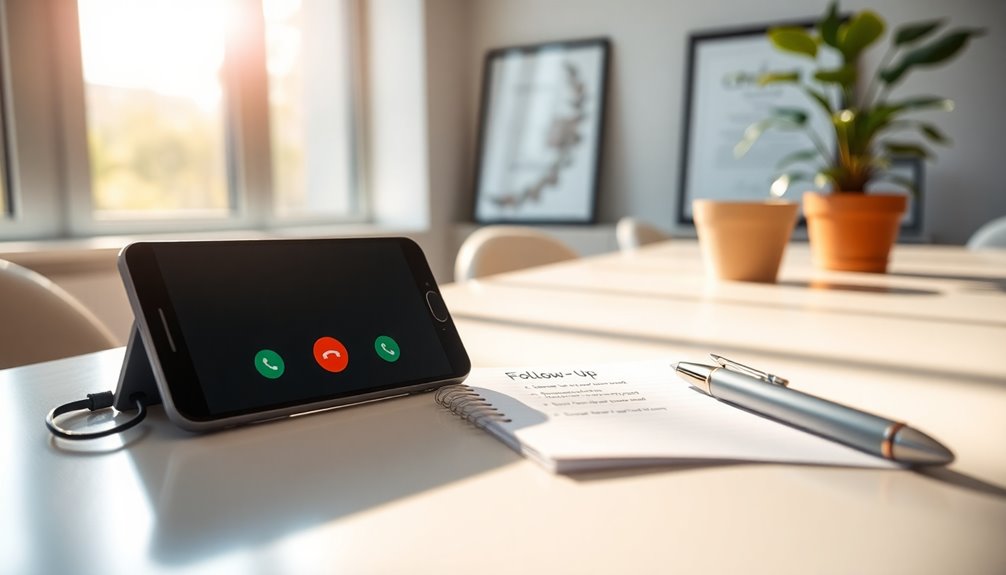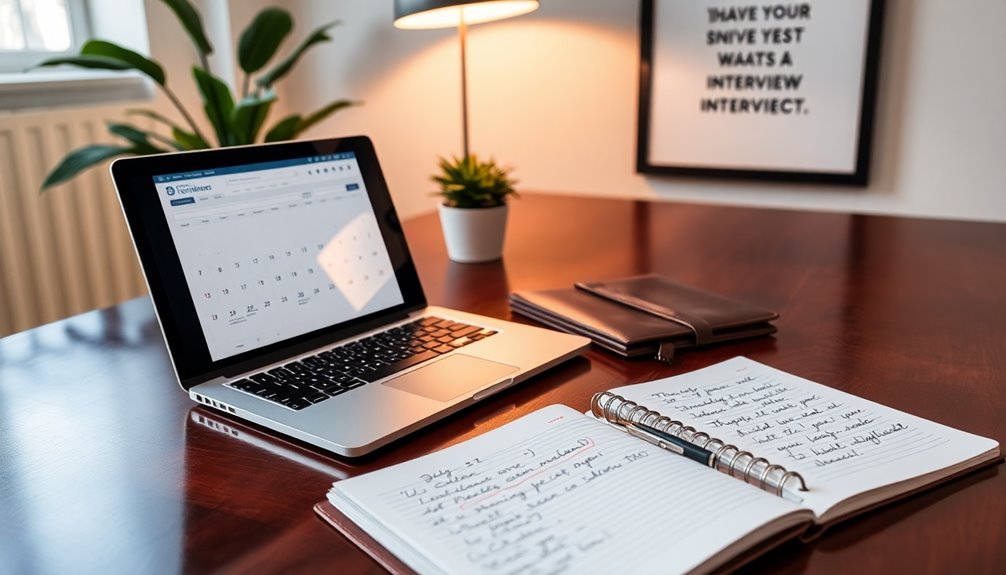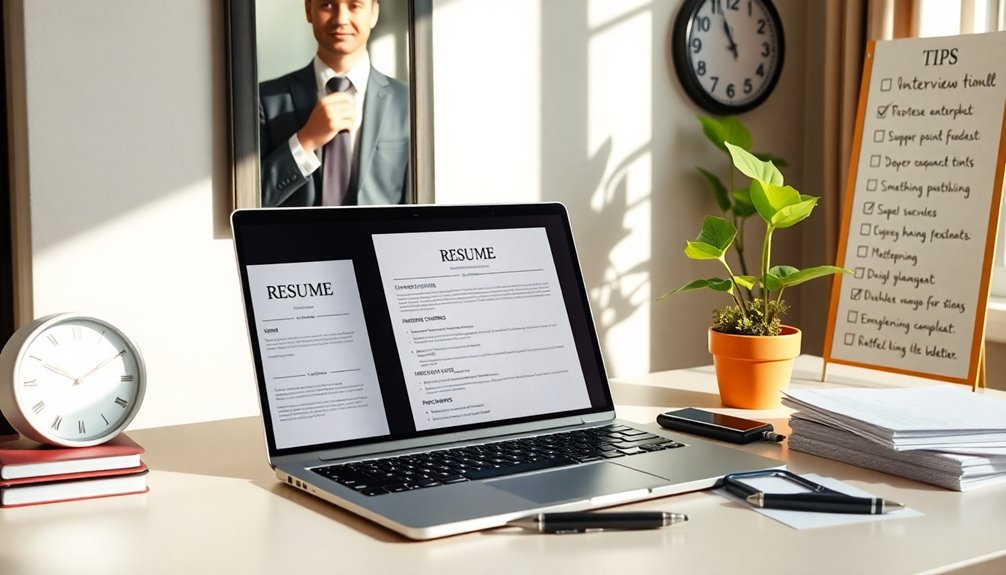Mastering follow-up calls post-interview is essential for standing out as a proactive candidate. Wait about one to two weeks after your interview before calling to avoid seeming pushy. When you do call, introduce yourself clearly, mention the position, and reference something specific from your interview. Thank the interviewer for their time and ask about the timeline for updates. Stay professional and courteous, regardless of the response you receive. This approach keeps you on their radar and reinforces your enthusiasm for the role. There's a lot more to examine that can boost your candidacy even further.
Key Takeaways
- Follow up one to two weeks after the interview to show interest without seeming pushy.
- Clearly introduce yourself and reference specific points from the interview to personalize the call.
- Express gratitude for the interview opportunity and inquire about the timeline for candidate updates.
- Maintain a professional tone throughout the call to leave a positive impression.
- Thank the hiring manager for any updates, regardless of the outcome, to reinforce professionalism.
Importance of Follow-Up Calls

Following up after an interview can set you apart from other candidates and keep your application on the radar. A follow-up call demonstrates your genuine interest in the position, showing that you're proactive and engaged.
It opens lines of communication with the employer, allowing you to get updates on your application status. Additionally, it can help you uncover any reasons for delays in the hiring process, giving you insight into where you stand.
This knowledge can be empowering, as it allows you to focus on other opportunities if necessary. By making that call, you not only reinforce your qualifications but also remind the hiring manager of your enthusiasm, keeping your candidacy fresh in their mind. Moreover, demonstrating your strong communication skills during this interaction can further enhance your impression as a candidate.
Ideal Timing for Follow-Up
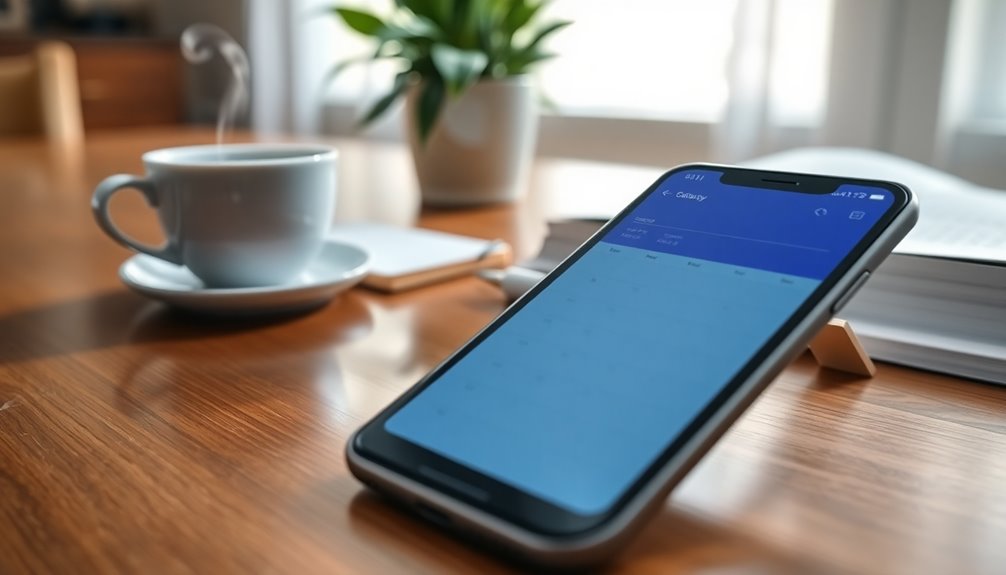
Timing your follow-up call is key to maximizing its impact. You should wait about one to two weeks after your interview before making that call. This timeframe gives the hiring team enough time to evaluate candidates while showing that you're not overly enthusiastic or impatient.
If you call too soon, it might come off as pushy; wait too long, and you risk appearing disinterested. Pay attention to any timelines mentioned during your interview, as these can guide your follow-up timing.
Effective Follow-Up Call Practices
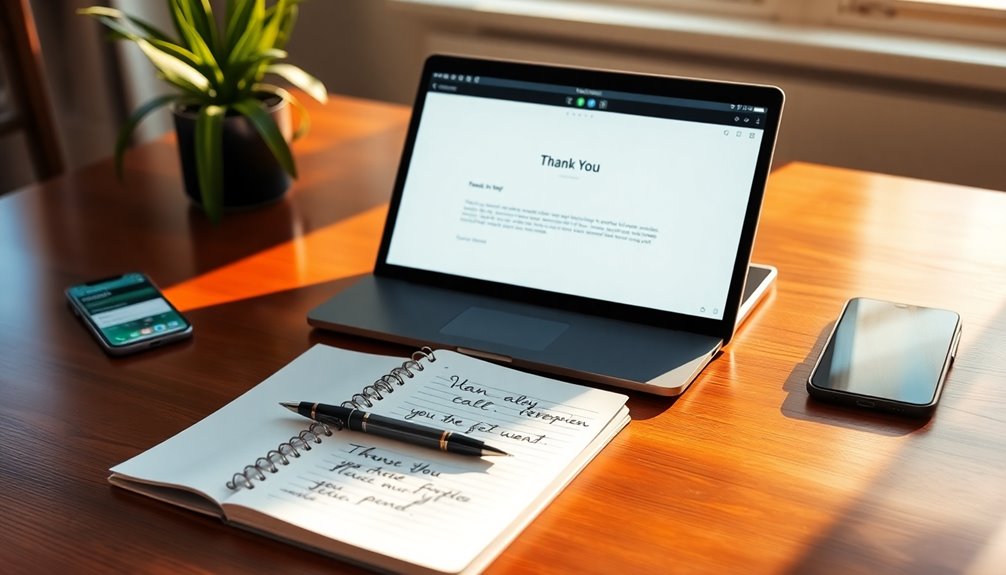
A successful follow-up call can greatly enhance your chances of making a lasting impression post-interview.
Begin by clearly introducing yourself, mentioning your name and the position you interviewed for. Reference a specific discussion point from your interview to personalize the conversation and jog the hiring manager's memory.
Express your gratitude for the interview opportunity, showing your appreciation for their time. Politely inquire about the status of your application and the timeline for future communications.
Prepare a brief script to help you stay focused and confident during the call. Remember, avoid complaining about the process or asking if you've been hired directly.
Keep the tone professional and courteous to leave a positive impression.
Structuring Your Follow-Up Message
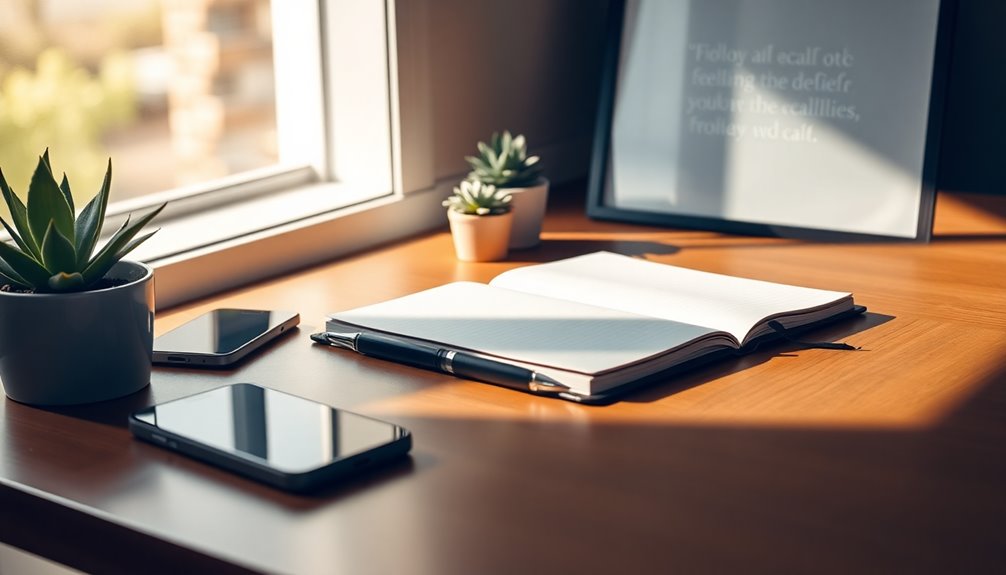
Crafting a well-structured follow-up message can considerably impact how you're perceived by the hiring manager. Start with a friendly greeting, like "Hello, [Hiring Manager Name]."
Then, introduce yourself: "My name is [Your Name], following up on my application for [Job Title]."
Next, reference something specific from your interview to jog their memory, perhaps a topic you discussed. This personal touch shows you're engaged and attentive.
After that, politely inquire about the timeline for contacting candidates, keeping the tone respectful and professional.
Finally, close your message by thanking the manager for their time and providing your contact information for any further communication.
This clear structure helps guarantee your message is both effective and memorable.
Navigating Responses After Calls

After making a follow-up call, it's vital to navigate the responses you receive with care and professionalism.
If you get a positive update, express your gratitude and enthusiasm. This reinforces your interest and keeps the connection strong.
If the response indicates a delay or uncertainty, remain composed and polite. Thank them for the update and ask if there's a new timeline for decisions.
If you don't receive a response, don't take it personally. It often means other candidates are being considered.
Focus on maintaining professionalism in all interactions, as this can leave a lasting impression.
Choosing the Right Communication Method
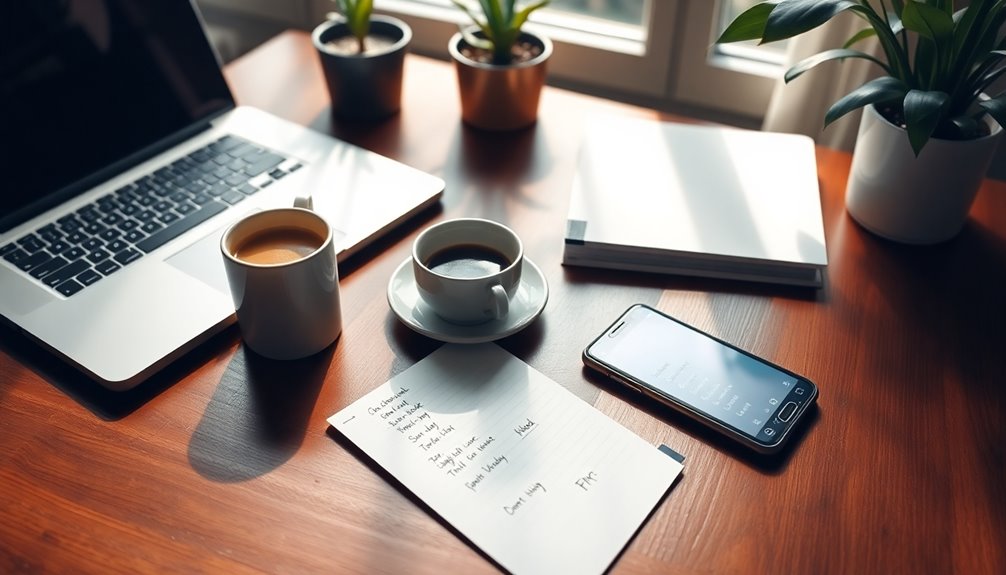
Choosing the right communication method for your follow-up can greatly impact how your message is received. You can opt for a phone call or an email, both of which are acceptable.
If you scheduled your interview via email, it's best to follow up in the same way for consistency. A call adds a personal touch and allows for immediate interaction, but an email provides a written record and can feel less intrusive.
Consider the timing, too; if it's been a week or two since your interview, a polite phone call can demonstrate your enthusiasm.
Whatever method you choose, make certain it aligns with the tone of your previous interactions, helping you maintain professionalism throughout the process.
Additional Resources for Candidates
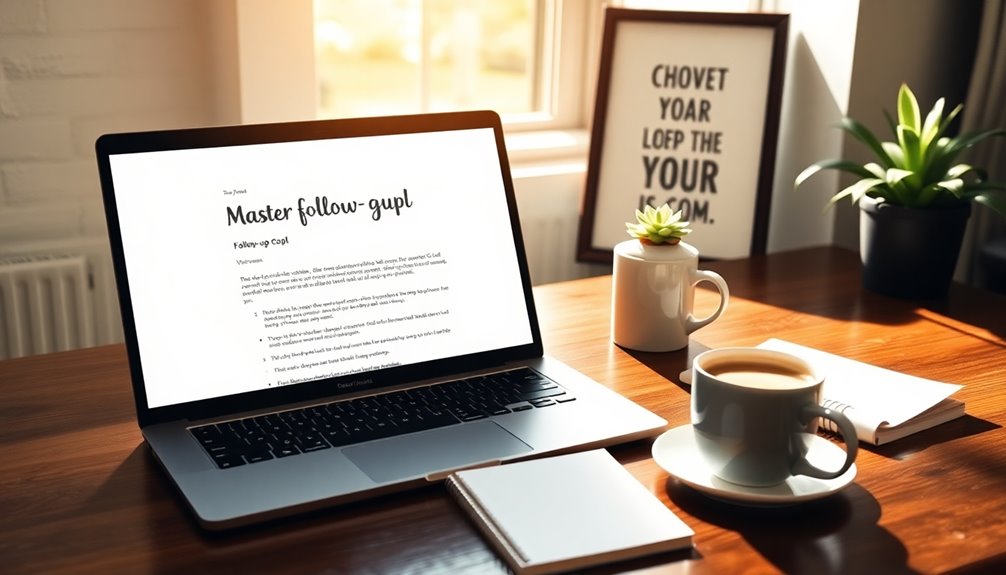
Exploring additional resources can greatly enhance your job search and interview preparation. By tapping into these tools, you can boost your confidence and improve your chances of landing that desired position.
Here are some valuable resources to take into account:
- "How To Make a Follow-Up Phone Call After an Interview": Learn effective strategies for follow-up communication.
- "How to Tell If a Phone Interview Went Well: 14 Signs": Identify key indicators of a successful interview.
- "45 Big 4 Interview Questions (Plus Sample Answers)": Prepare for common interview questions specific to top firms.
- "What Does a Finance Department Do?": Gain insights into finance roles to showcase your knowledge during interviews.
Utilizing these resources will empower you to navigate the job market more effectively.
Frequently Asked Questions
How Should I Prepare for a Follow-Up Call?
To prepare for a follow-up call, start by gathering your thoughts on the interview and jotting down key points you want to mention.
Practice a clear introduction and reference a specific topic from your conversation.
Write a brief script to stay focused and express gratitude for the opportunity.
Make certain to have your questions ready, especially about the timeline.
Finally, find a quiet place to guarantee a professional atmosphere during the call.
Can I Follow up More Than Once?
Sure, you can follow up more than once, but it's a delicate balance.
While persistence shows enthusiasm, too many calls or emails might come off as pushy. After your initial follow-up, wait a reasonable time—typically a week or two—before reaching out again.
Each time, keep it polite and professional, expressing your continued interest and inquiring about updates without sounding impatient.
This approach can keep you in the employer's thoughts without overwhelming them.
What if I Don't Have the Hiring Manager's Contact Info?
If you don't have the hiring manager's contact info, try reaching out through the company's main phone line or email.
You can also check the company's website for general contact details or LinkedIn for the hiring manager's profile.
Networking with current employees might help, too.
If all else fails, sending a polite inquiry to the HR department can get you the information you need to follow up effectively.
Should I Follow up if I Was Rejected?
Imagine a door closing softly behind you, yet a light flickers through the cracks.
If you've been rejected, it's still worth following up. You might gain valuable insights into your performance or future opportunities.
A simple thank-you note can keep that light shining, showing your professionalism and resilience.
Don't hesitate to reach out; it might just open another door down the line.
After all, every connection counts in your career journey.
How Can I Handle a Negative Response During a Follow-Up Call?
When you receive a negative response during a follow-up call, stay calm and composed.
Acknowledge their decision gracefully, thanking them for the opportunity. Ask if they can provide feedback on your interview performance; this shows your willingness to learn.
Keep the door open for future opportunities by expressing your continued interest in the company.
Finally, maintain a positive tone, as you never know when another role might become available.
Conclusion
In the grand tapestry of your job search, follow-up calls are the golden threads that weave your narrative together. By reaching out, you're not just waiting for fate to decide; you're taking the reins, steering your ship through uncharted waters. So, embrace the art of the follow-up, and let your voice echo in the corridors of opportunity. With each call, you're not merely checking in—you're crafting your own destiny, one conversation at a time.
